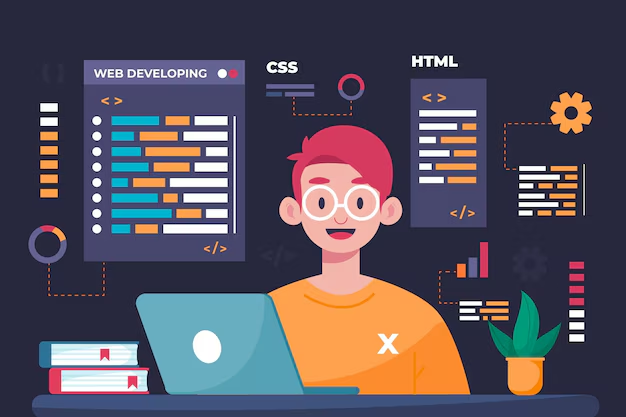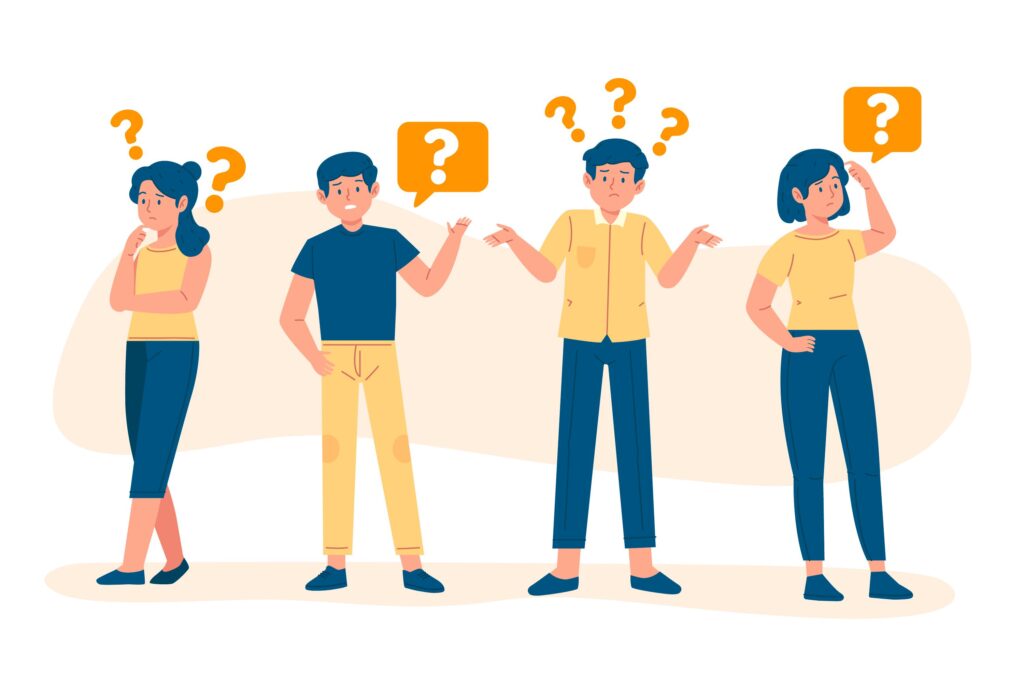A job in technology that entails creating and designing websites and online apps is known as full-stack development. Both front-end and back-end website development are handled by these developers. Understanding the duties and responsibilities of a full-stack developer might help you make an informed choice if you’re interested in the position. This article explains how to become a full-stack developer, goes over how to become one, and teaches you the skills you need to do it.
What Is A Full-Stack Developer?

A web programmer who builds websites and online apps from the ground up is known as a full-stack developer. To create a whole website, these experts need to be proficient in programming languages and tools and may concentrate on both frontend and backend web development. Frontend development involves creating the visually appealing and functional components of a website, whereas backend development involves creating the databases and infrastructure that support a website.
Even though consumers often cannot see a website’s backend, it makes sure that every website functions correctly. These developers guarantee speed, dependability, and other essential aspects while creating an application’s front and back end. These experts are proficient in languages like JavaScript, HTML, and CSS. They frequently serve as the leaders of web development teams that create new websites and redesign old ones. In their capacity as consultants, these developers offer advice and carry out a variety of web-based programming-related duties.
How To Become A Full-Stack Developer
Read to learn how to become a full-stack developer, use these steps:
1. Complete your education in computer science
To become a full-stack developer, you must first have a degree in computer science or a similar field. In computer science, you can get a Bachelor of Engineering or a Bachelor of Technology degree. Candidates with a Bachelor of Science (BSc) or Bachelor of Computer Application (BCA) in computer science may be preferred by some employers. You can persuade job employers that you possess both basic and sophisticated coding abilities by completing your diploma. To further your career and demonstrate to hiring managers that you possess the necessary abilities, you can even go after a post-graduate degree.
2. Learn the basic programming languages
Depending on the needs of the project, a full-stack developer may utilize Python, SQL, JavaScript, and other computer languages. You may design websites using various patterns and concepts if you have knowledge of these frontend apps. Building a solid foundation may be facilitated by having proficiency in languages like HTML and CSS. By taking a beginning course, making programs with templates, and viewing educational videos on social media platforms, you may master these languages.
3. Gain knowledge of the development frameworks and tools
Understanding development frameworks and tools is crucial for developers, in addition to the design and organization of a website or online application. Candidates with a thorough grasp of how frameworks and libraries activate the code are frequently preferred by hiring managers. It mostly aids in front-end and back-end development. For this position, a basic familiarity of AngularJS, JQuery, and REACT is preferred.
4. Learn database and caching
Every web application or website needs a database to hold the data. For the position, it is preferred that candidates have a solid understanding of and expertise with several databases, including SQL and MongoDB. Every database has advantages and disadvantages, therefore the one you choose will depend on the project you are working on. Frequently, a programming language may come with built-in databases that aid in code optimization.
5. Practice coding
Writing code for simple websites and creating and viewing them on various devices will help you hone your database and programming abilities. You learn more about design and deployment the more you practice. It may assist you in expanding your skills and creating dynamic, eye-catching websites and online apps. You may hone your coding abilities by practicing on a free online platform. This is an essential skill that you must acquire to become a full-stack developer.
6. Gain relevant experience
You can gain important on-the-job training and experience through internships and entry-level jobs. Gaining appropriate experience as an entry-level developer can help you advance in your profession. To develop your abilities and learn about the duties of the position, you can think about taking part in a paid or unpaid internship. Enhancing your coding abilities can help you apply for a full-time full-stack developer position. To find a full-stack development job that suits your needs, search for openings on a number of employment portals and websites.
7. Update your resume
A well-written CV may help you showcase your qualities and expertise. Make sure your CV emphasizes your expertise in full-stack development. List your relevant talents and abilities on your CV to demonstrate to hiring managers why you are a good fit for the position. Demonstrating your capacity to collaborate with others might help you get the respect of supervisors. On your CV, you may even include a link to your portfolio. To stand out from the competition, emphasize your educational background and work experience.
Conclusion

If you follow the correct path and remain resolute, full-stack programming may be a fulfilling job. On the other hand, be ready to face some obstacles along the way. Your patience will be tried on certain days, and your talents may be put to the test on others. But the most crucial thing is to keep going. Thus far, we have discussed how to become a full-stack development job.
If you want to become a full-stack developer or want to know more about it, then feel free to connect for a free 15-minute call with us.
Visit EnrichMyCareer for more information.
Frequently Asked Questions
1. Can I learn full stack in 3 months?
You might be able to make the switch to full stack in as short as three to six months if you have some prior professional expertise with coding or programming and study full-time. Prior experience with web development and programming languages is necessary for this expedited timetable.
2. Is there a demand for full-stack developers?
Yes, a career in full-stack development is a great choice. Businesses from a wide range of sectors are looking for full-stack developers because of the increased demand for their skills. Because of their broad skill set, full-stack developers are adaptable and useful resources for businesses.
3. What is the lowest salary for a full-stack developer?
Based on the most recent 38.1k wages, the compensation range for a full stack developer in India with less than a year of experience to seven years is 1.8 Lakhs to 16.0 Lakhs.
Nishant is an Internationally Certified Career Coach, a Career Counsellor, an Education Consultant, a Soft Skills Trainer, and an ardent advocate of youth empowerment through personalized guidance, mentoring, and developmental interventions. He is also an International Economic Development and Business Consultant. Over the years, he has helped many students of different age groups and working professionals in discovering their true selves, setting appropriate career goals, and walking the right career paths.
Nishant is a mechanical engineering alumnus from R.V. College of Engineering, Bangalore. He has been widely featured in top media and also delivered talks at Cambridge University-UK and IIT-Guwahati among others. He has also delivered workshops at many reputed schools and colleges on various careers and skills-related topics.



